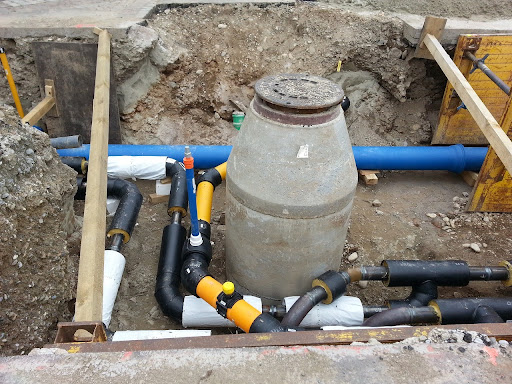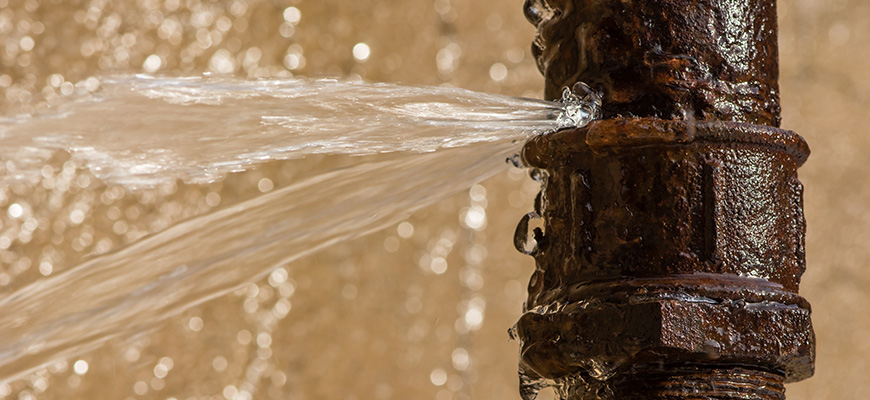Are you confused about the difference between a sewer system and a septic system? Wondering how they impact your home plumbing? Look no further! In this article, we will navigate through the various aspects of sewer and septic systems, helping you gain a better understanding of these plumbing infrastructures.
How sewer systems work
A sewer system is a centralized network of underground pipes that carry wastewater from residential, commercial, and industrial buildings to a treatment facility. It is a common infrastructure in urban areas where properties are connected to a municipal sewer system. The process begins with the collection of wastewater from sinks, toilets, showers, and other plumbing fixtures in your home.
Once the wastewater is flushed down the drains, it flows through gravity or pressure to the main sewer line connected to your property. From there, it joins the larger network of sewer lines that transport the wastewater to a treatment plant. At the treatment plant, the wastewater undergoes a series of processes, including filtration, disinfection, and chemical treatment, to remove impurities and contaminants before it is discharged back into the environment.
One of the major advantages of a sewer system is its convenience. You don’t have to worry about maintaining or emptying a septic tank, as the wastewater is taken care of by the municipal authorities. Additionally, a sewer system can handle a large volume of wastewater from multiple properties, making it suitable for densely populated areas. However, it is worth noting that connecting your property to a sewer system may come with connection fees and ongoing sewer usage charges imposed by the municipality.
How septic systems work
On the other hand, a septic system is an individual, on-site sewage treatment system installed on properties without access to a public sewer system. It is commonly found in rural and suburban areas where connecting to a centralized sewer system is not feasible or cost-effective. A septic system consists of a septic tank and a drain field, also known as a leach field.
When wastewater from your home enters the septic tank, it undergoes a natural separation process. Solid waste settles at the bottom of the tank, forming a layer of sludge, while lighter substances, such as oil and grease, float to the top, creating a layer of scum. The liquid portion, known as effluent, flows out of the tank and into the drain field through perforated pipes.
In the drain field, the effluent is further treated and filtered as it percolates through the soil. The soil acts as a natural filter, removing impurities and harmful bacteria before the treated water recharges the groundwater or enters nearby water bodies. Regular maintenance, including periodic pumping of the septic tank, is necessary to prevent the accumulation of sludge and scum, ensuring the system functions efficiently.
Septic systems have their own set of advantages. They are independent of municipal sewer systems, giving homeowners more control over their wastewater management. Additionally, septic systems are typically more cost-effective to install, especially in areas where connecting to a sewer system would be prohibitively expensive. However, they require regular maintenance and careful usage to prevent issues such as clogs, backups, and groundwater contamination.
Pros and cons of sewer systems
Sewer systems offer several benefits that make them an attractive option for homeowners. Firstly, connecting to a sewer system eliminates the need for a septic tank, freeing up space on your property. This can be particularly advantageous for small yards or properties with limited space. Additionally, sewer systems can handle large volumes of wastewater without the need for regular maintenance or pumping. They are also less prone to issues such as clogs and backups, as the wastewater is transported through a network of underground pipes.
However, sewer systems also have their drawbacks. Connecting to a sewer system often involves upfront costs, including connection fees and hiring a professional plumber for the installation. Additionally, homeowners connected to a sewer system are subject to ongoing sewer usage charges imposed by the municipality. If the sewer line experiences a blockage or damage, repairs can be costly and may require excavation of your property. Furthermore, in the event of a power outage, sewer systems dependent on electric pumps may not function properly.
Pros and cons of septic systems
Septic systems offer homeowners several advantages, making them a popular choice in areas without access to a municipal sewer system. One of the key benefits is cost-effectiveness. Installing a septic system is generally less expensive than connecting to a sewer system, especially in remote or rural areas. Septic systems also provide more control over wastewater management, as homeowners can monitor and maintain their systems according to their specific needs.
Another advantage of septic systems is that they can be environmentally friendly when properly maintained. The natural treatment process in the septic tank and drain field allows for the filtration and removal of contaminants from the wastewater before it returns to the environment. Additionally, septic systems are not reliant on electricity, making them more resilient during power outages.
Despite these benefits, septic systems have their downsides. They require regular maintenance, including periodic pumping of the septic tank, to prevent issues such as clogs, backups, and groundwater contamination. Homeowners must also be cautious about what they flush down the drains, as certain substances can disrupt the natural treatment process and damage the septic system. Furthermore, when it comes to property value, some potential homebuyers may prefer properties connected to a municipal sewer system, which could impact the resale value of homes with septic systems.
Maintenance and care for sewer and septic systems
Proper maintenance and care are crucial for both sewer and septic systems to ensure their optimal performance and longevity. Here are some essential practices to keep in mind for each system:
Sewer system maintenance:
- Regularly inspect and clean sewer lines to prevent blockages and backups.
- Avoid flushing non-biodegradable items, such as wipes and sanitary products, down the toilet.
- Properly dispose of cooking oils and grease to prevent them from clogging the sewer lines.
- Be mindful of what you put down the drains, including chemicals and harsh cleaners that could damage the pipes.
- If you notice any signs of a sewer line issue, such as slow drains or foul odors, contact a professional plumber for inspection and repairs.
Septic system maintenance:
- Schedule regular inspections and pumping of the septic tank to remove accumulated sludge and scum.
- Avoid flushing non-biodegradable items, such as diapers and cigarette butts, down the toilet.
- Use septic-safe toilet paper and household cleaning products to prevent the disruption of the natural treatment process.
- Be mindful of water usage to prevent overloading the septic system.
- If you notice any signs of a septic system issue, such as slow drains, gurgling sounds, or foul odors, contact a professional septic system service provider for inspection and repairs.
By following these maintenance guidelines, you can ensure the efficient operation of your sewer or septic system, minimizing the risk of costly repairs and potential health hazards.
Conclusion: Choosing the right system for your home plumbing
In conclusion, understanding the difference is essential for homeowners to make informed decisions about their home plumbing. Sewer systems are a convenient option for properties connected to a municipal sewer network, offering hassle-free wastewater management and the ability to handle large volumes of wastewater. However, they come with upfront costs and ongoing sewer usage charges.
On the other hand, septic systems provide homeowners with more control over their wastewater management and are often more cost-effective to install. They require regular maintenance and careful usage to ensure optimal performance, but when properly maintained, they can be environmentally friendly and resilient during power outages.
When choosing the right system for your home plumbing, consider factors such as property location, available infrastructure, upfront costs, ongoing maintenance needs, and the impact on property value. Consulting with a professional plumber or septic system service provider can help you assess your specific requirements and make an informed decision.
By understanding the differences and weighing the pros and cons of sewer and septic systems, you can choose the system that best suits your needs, ensuring efficient and reliable wastewater management for your home. So, whether you opt for a centralized sewer system or an individual septic system, you can have peace of mind knowing that your home plumbing is in good hands.
Photo by
on


